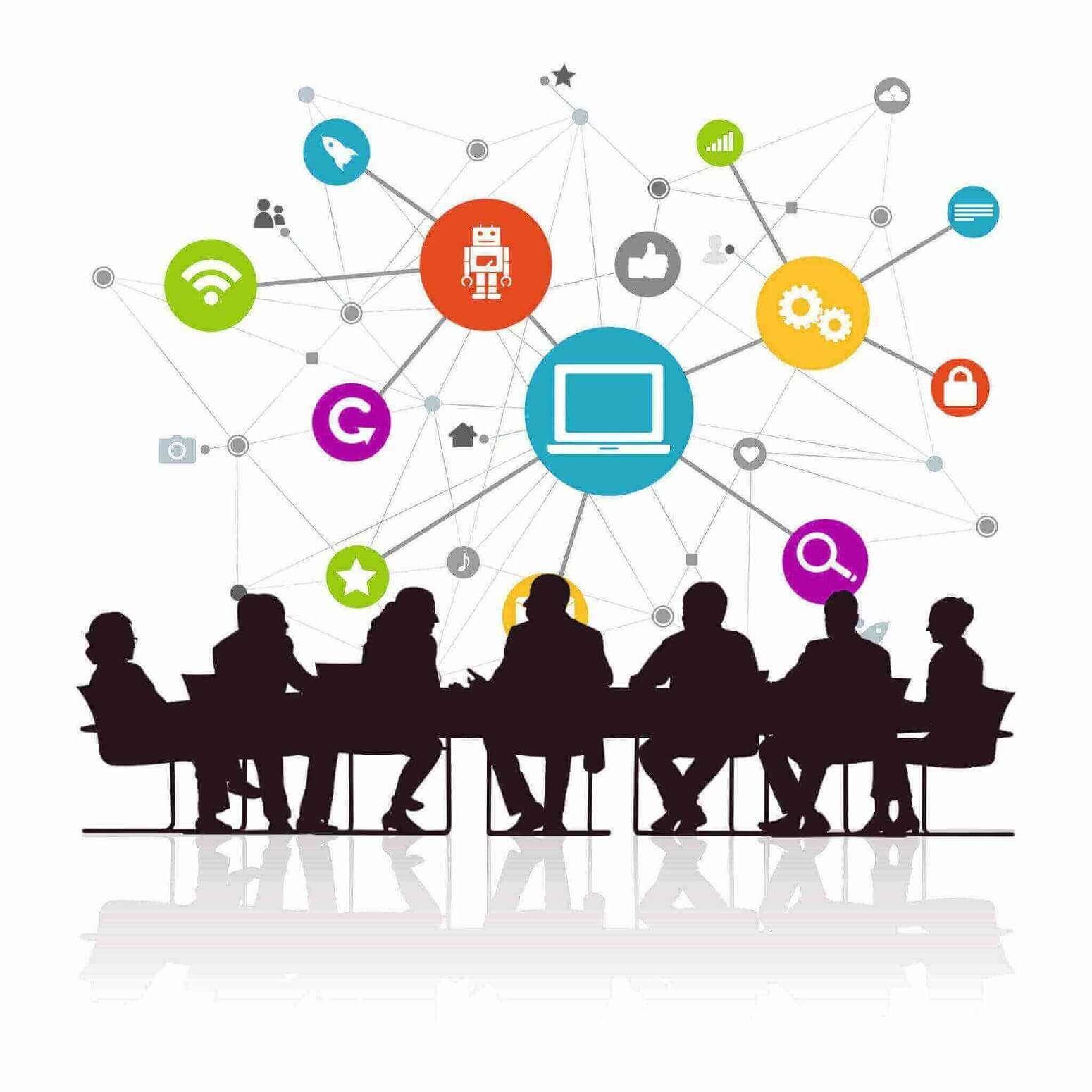2021 has been the catalyst of change for most HR teams. They needed to shift to work-from-home policies and remotely manage distributed teams. Supporting employee wellbeing, both physical and mental, feels more important than ever. Not to mention the impact of remote work on team collaboration and workplace morale.
To adapt to these changes, HR teams need to invest in advanced tech solutions. Here are some of them.
1. Team Collaboration Tools
Since the outbreak of the Coronavirus crisis, remote work is no longer optional. Mobility and flexibility will remain critical even in the post-COVID work settings.
Investing in the right team collaboration tools allows HR managers to keep their distributed teams connected and productive.
Video conferencing tools let employers can schedule effective one-on-one meetings and conferences.
IM tools like Slack create a pleasant virtual co-working space and increase employee collaboration.
Finally, project management tools like Basecamp are a must for any remote team. Managers can create tasks, set deadlines, add new projects, and monitor employee performance more efficiently.
2. Employee Self-Service Tools
HR professionals are often perceived as a link between project managers and employees. Employees go to them when they want to learn more about workplace updates or have problems. Unsurprisingly, HR managers are often overloaded with repetitive tasks.
That is where employee self-service technologies help. With them, HR professionals keep the team updated without having to answer each employee’s questions.
There are several types of self-service systems. One of them is a knowledge base. A knowledge base should provide employees with comprehensive guides, articles, and policies that answer their questions.
You can take employee self-service to the next level with chatbots. They can automate a wide range of manual tasks and provide instant responses to their common queries.
3. Employee Background Checking Tools
Hiring candidates based on their resumes can harm your business on multiple levels. That is why employment background checks should be the pillar of your recruitment process.
With these tools, HR teams can reduce the risk of negligent hiring. According to recent statistics, 94% of employers conduct at least one type of background screening, while 73% have a documented policy for background checking procedures. These policies include employees’ criminal records, employment history, education background, certifications, and social media checks.
4. People Analytics Software
Businesses struggle with the gap between the managers’ goals and those of their teams. Consequently, they fail to provide employees with the right career growth opportunities and meet their needs.
That is where people analytics software helps. It uses data science and artificial intelligence to collect and analyze employee data. Based on it, the software looks for patterns in employee behaviors.
You can use people analytics tools in different stages of HR management.
For example, these tools play a vital role in employee training processes. You can use them to learn more about employees’ preferred learning styles, motivations, and ambitions. That is how you increase the effectiveness of employee training.
People analytics also help you boost employee engagement. You can use them to track employee engagement levels. Based on these reports, you can tweak your workplace policies to boost worker satisfaction and productivity.
These tools provide insights into the state of the workplace and help you make more informed decisions in the future.
5. Data Security Systems
With the rise of cloud technologies and remote work, data protection has become a growing concern for HR teams. In the era of major shifts in data protection legislation, investing in sophisticated data security options is paramount.
Companies need to invest in systems and develop procedures that ensure the data is correctly managed, stored, and processed. With the rise of the latest data security policies, people expect to be in control of their sensitive data. That is where technologies like Blockchain can help.
Sure, the HR team plays a critical role in your company’s data security policy. HR teams should make data security awareness a central part of your internal company culture. They can host employee training that empowers teams to use new technologies without sacrificing data security.
6. AI-Powered Analytics
The HR industry is all about data. The significance of data management in this industry is unquestionable, especially as your team expands. Tools available to HR departments today vary from employee feedback tools to advanced AI analytics platforms.
Augmented analytics is a recent trend that dominates the HR sector. It uses machine learning and natural language generation to automate data analytics and insights. AI collects and analyses data, while NLP translates it into easily digestible reports.
That is an effective way to analyze massive employee data and gain deeper insights into it. That is the opportunity to understand what drives and engages them. By automating the data analytics process, HR can focus on what matters the most – their people.
Over to You
Implementing innovative HR technologies requires a strategic approach. Half the job will be in preparing your team to shift from traditional HR processes. Once you adopt the tech trends mentioned above, you will enhance your HR processes and speed up your company’s growth.


